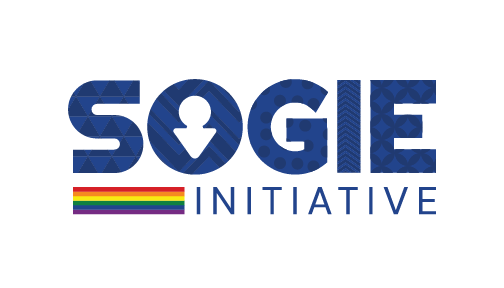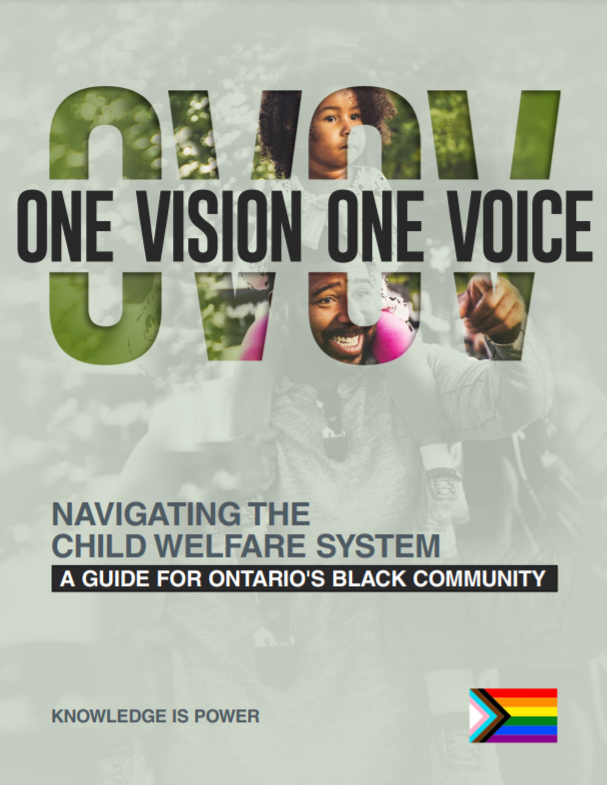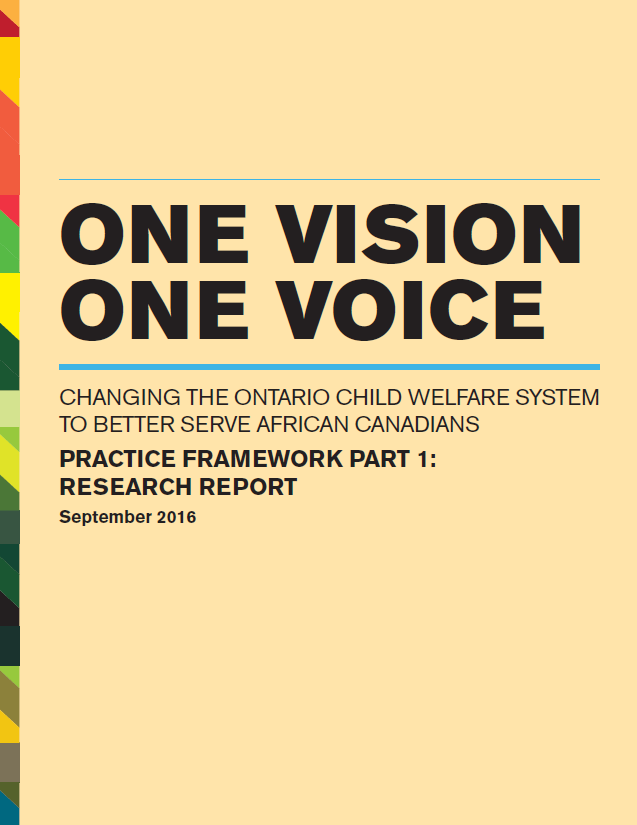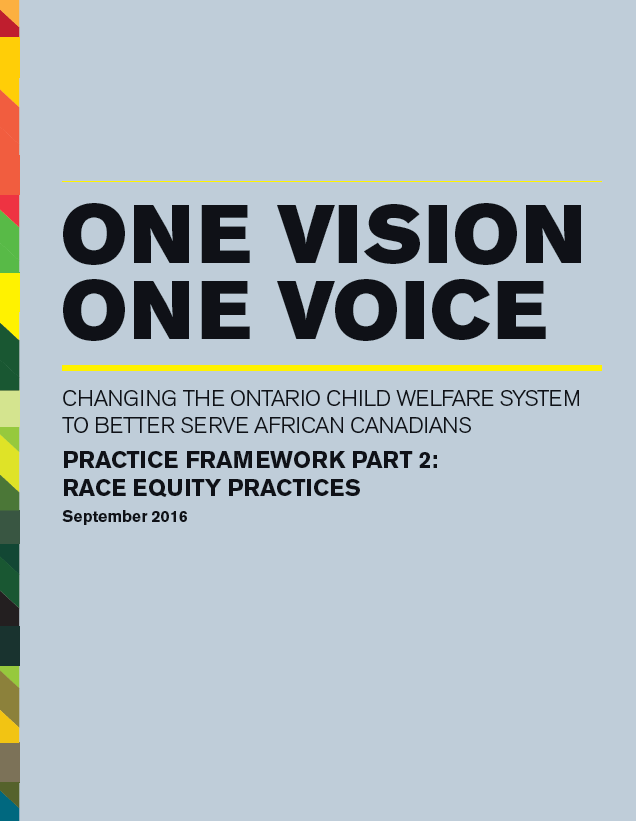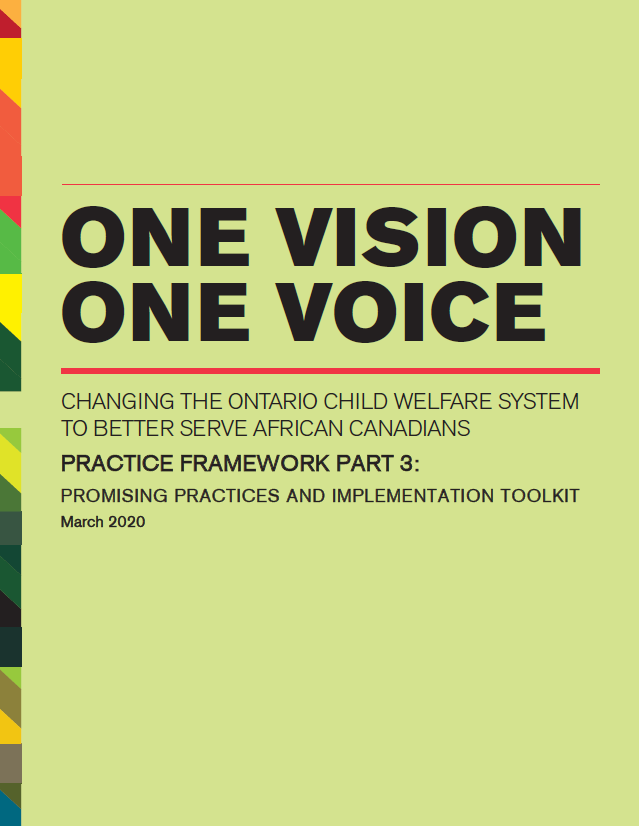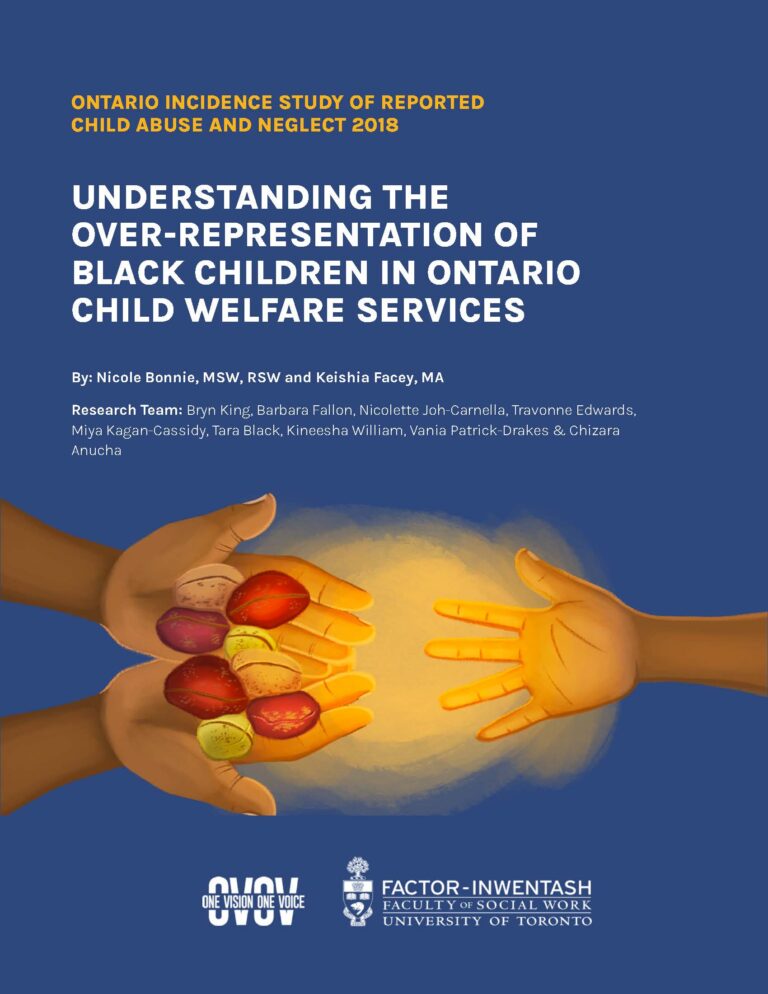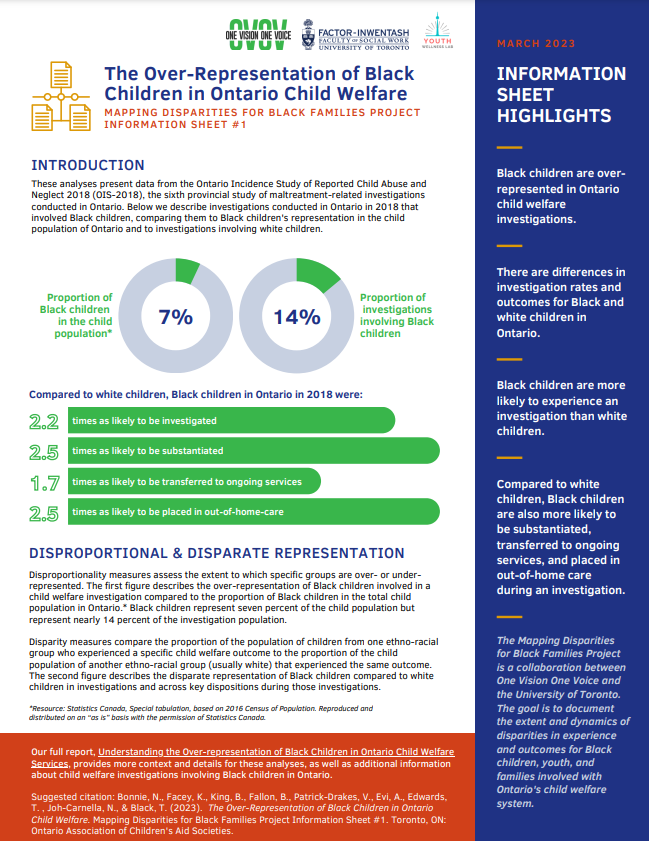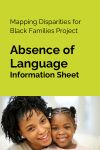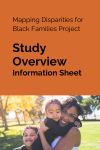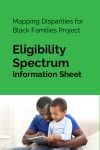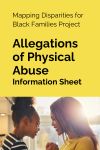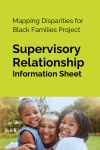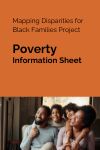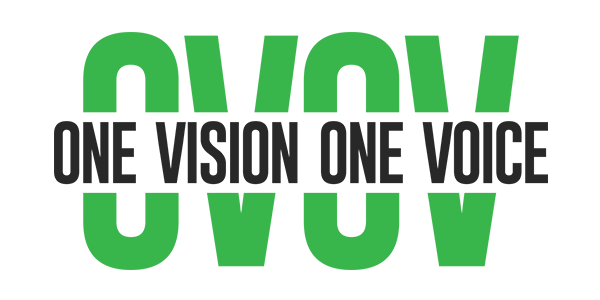
Changing the Ontario Child Welfare System to Better Serve African Canadians
One Vision One Voice is a program led by the African Canadian community. It is funded by the Ontario Ministry of Children, Community and Social Services through the Ontario Association of Children’s Aid Societies and addresses the overrepresentation and experiences of disparities faced by African Canadians after coming into contact with the child welfare system.
One Vision One Voice (OVOV) was launched in 2015 and included three project phases, until it received annual, ongoing funding in 2021.
The program focuses on addressing anti-Black racism and supporting improved outcomes and equitable services for African Canadian children, youth, and families in Ontario’s child welfare system. This includes through the development of culturally appropriate, family-centred services; anti-Black racism training; and leadership and networking opportunities for African Canadian youth and child welfare staff. OVOV is taking a cross-sectoral approach, with attention placed on how multiple systems, particularly education, police, and healthcare, interact to create and maintain racial disproportionality and disparities in child welfare.
Some of the program priorities include:
1. Child Welfare Policies and Practices
OVOV prioritizes the collection and analysis of data regarding Black children, youth, and families involved in child welfare. Doing this allows us to remain aware of data trends, and to be able to impact changes in legislation. We are already making significant strides in impacting policy through initiatives like the OIS 2018 report, the Disparity Mapping Project in partnership with the University of Toronto, and our inaugural Policy Forum. OVOV also organizes and facilitates regular staff meetings for Black staff in the child welfare system to provide a safe space for discussion, strategizing, and support.
2. A Focus on Leadership
Tackling anti-Black racism in any system must start at the top. OVOV offers leadership support via initiatives such as the African Canadian Leadership Mentorship Program and the Confronting Anti-Black Racism in Child Welfare for Leaders Course to increase understanding of anti-Black racism and its manifestations, as well as to provide increased opportunities for Black employees to occupy positions of leadership and to improve organizational culture.
3. Community Engagement
OVOV is informed and led by the African Canadian community. We continue to build relationships with community and grassroots organizations to enable community empowerment and knowledge exchange. We do this through youth engagement efforts like PowerUp!, system navigation support for the Black community, the Black Youth and Family Services Directory, and via regular consultations with our African Canadian Provincial Advisory Committee.
4. Service Delivery
OVOV advocates for the delivery of culturally relevant services for African Canadian children and youth in care. We offer a trauma-informed African Canadian Service Delivery Best Practices framework which agencies can reference to guide their own culturally relevant service delivery. OVOV also meets regularly with a sector advisory committee known as the CAS Reference Group (comprising Directors of Service, Equity leads, Supervisors, OVOV leads, and others) to receive sector-specific feedback. This feedback assists in guiding and informing OVOV’s work.
One Vision One Voice (OVOV) welcomes child welfare redesign. Embedding equity approaches, frameworks, and policies into system redesign is critical to addressing overrepresentation and challenging oppressive structures and practices.
Child welfare redesign provides a critical opportunity to prioritize early intervention and use community-based prevention strategies and process mapping to strengthen families and respond to the needs of African Canadian children, youth, and families.
The Ministry of Children, Community and Social Services, community stakeholders, child welfare agencies, and OACAS have responded to the urgent call to action expressed by African Canadian children, youth, and families to address the severe harm they have experienced within child welfare through consistent and on-going funding of the OVOV program.
Anti-Black racism is systemic and insidious, permeating systems, legislation, policies, and practices with detrimental impacts on Black families.
We acknowledge the historical legacies of colonialism that produced and sustain anti-Black racism across institutions in Ontario, including within child welfare.
We underscore the importance of embracing decolonization as a tool to dismantle institutional and systemic oppression.
The pursuit of equitable outcomes and social justice for Black children, youth and families cannot be done in silos. The work is and must be the responsibility of everyone working within and alongside child welfare, including leaders, decision makers, frontline staff, community organizations, and mandated referrers.
Many have already engaged in incredible sacrifice to speak out and take meaningful action against oppression. We pay homage to those who continue to resist and challenge economic exploitation, homophobia, racism, gender discrimination, religious bigotry, and other oppressive constructs.
We honour those who have devoted their lives as tireless champions in the pursuit of justice, equity, human rights, and other forms of social and economic justice. Those who have challenged oppressive systems and who have constructed affirming and equitable examples for all of us to follow, we stand on your sturdy shoulders, and commit ourselves to working alongside you in solidarity for the purpose of liberation.
For decades, African Canadian communities across the province have raised concerns about the overrepresentation of African Canadian children in care of Children’s Aid. African Canadian parents and families have also raised concerns about how they are treated by child welfare staff and the overall system.
Issues in Ontario reflect the issues raised by African Americans throughout the United States. Compared to their White counterparts, African Canadian children are:
- More likely to be referred to a Children’s Aid Society by educators, police, and medical professionals
- More likely to be removed from their homes
- Less likely to be returned to their families
- More likely to grow up in foster care without being adopted or finding another permanent home
The two key issues are:
- Disproportionality: the over- or under-representation of certain groups (e.g., racial) in a public child welfare agency relative to the group’s proportion in the general population.
- Disparity: when services to one segment of the community are allocated differently, such as an increased or decreased likelihood of entering or exiting the services system or care.
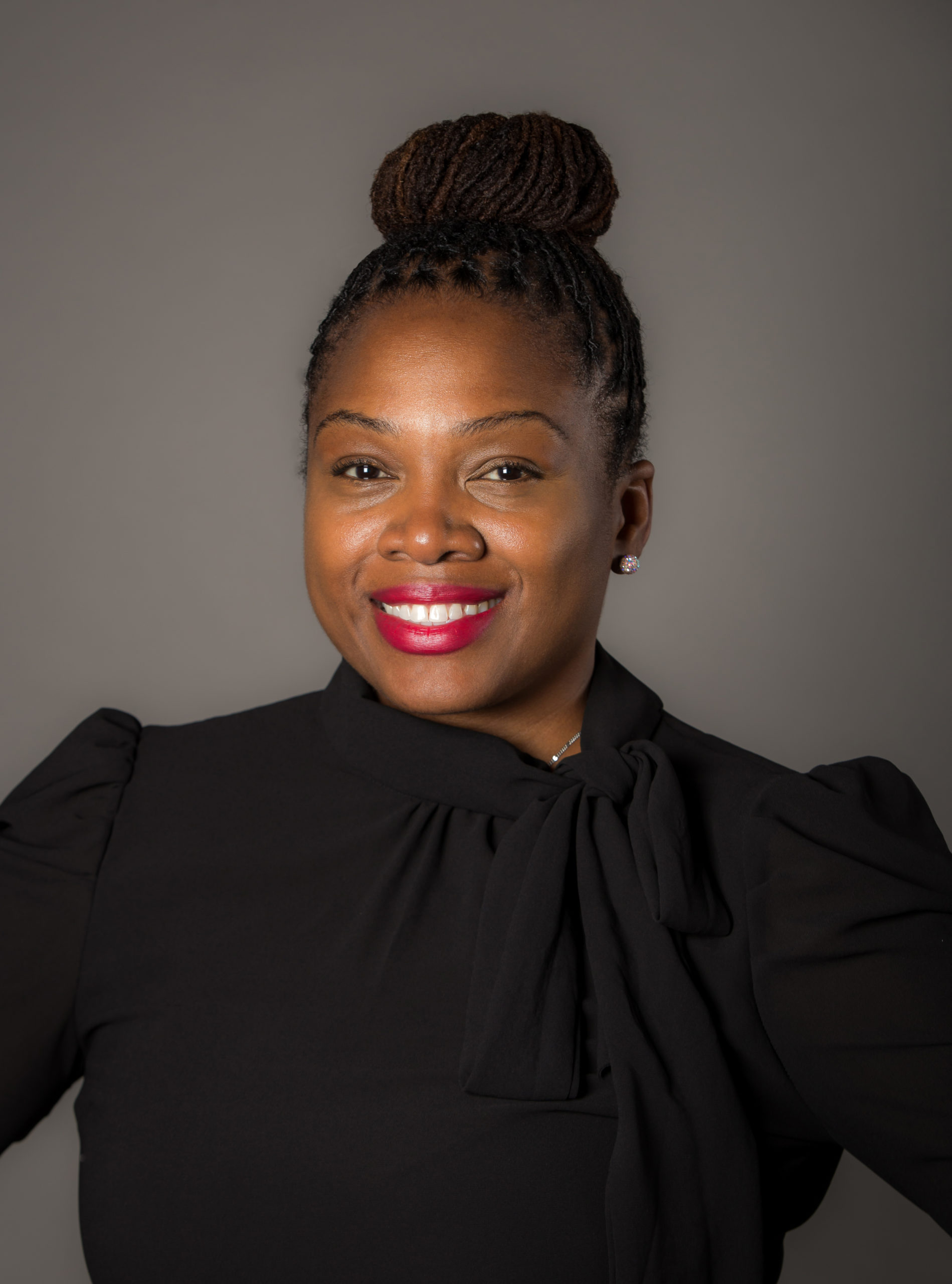 Keishia Facey, Senior Manager, OVOV and Learning
Keishia Facey, Senior Manager, OVOV and LearningKeishia is an Equity, Inclusion, and Organizational Change leader with extensive experience developing actionable policies and strategies to combat systemic racism across various sectors, including education, mental health, and child welfare. Keishia currently leads the One Vision One Voice (OVOV) and Education Services portfolios at the Ontario Association of Children’s Aid Societies (OACAS), driving initiatives that advance equity within child welfare.
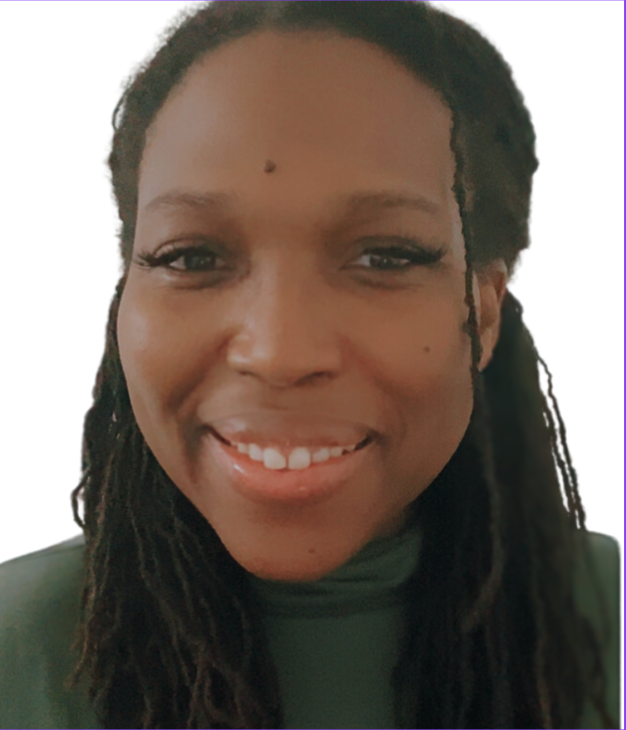
Vania Patrick-Drakes, Manager, OVOV
Vania has over ten years of experience in mental health, social policy, advocacy, and social justice. Specializing in equity, diversity, and inclusion (EDI) and anti-racism, anti oppression (ARAO) training and policy development, Vania leads ARAO organizational strategies across systems through comprehensive analyses and strategic implementation. Vania currently serves as Manager for One Vision One Voice, supporting equity-focused initiatives.
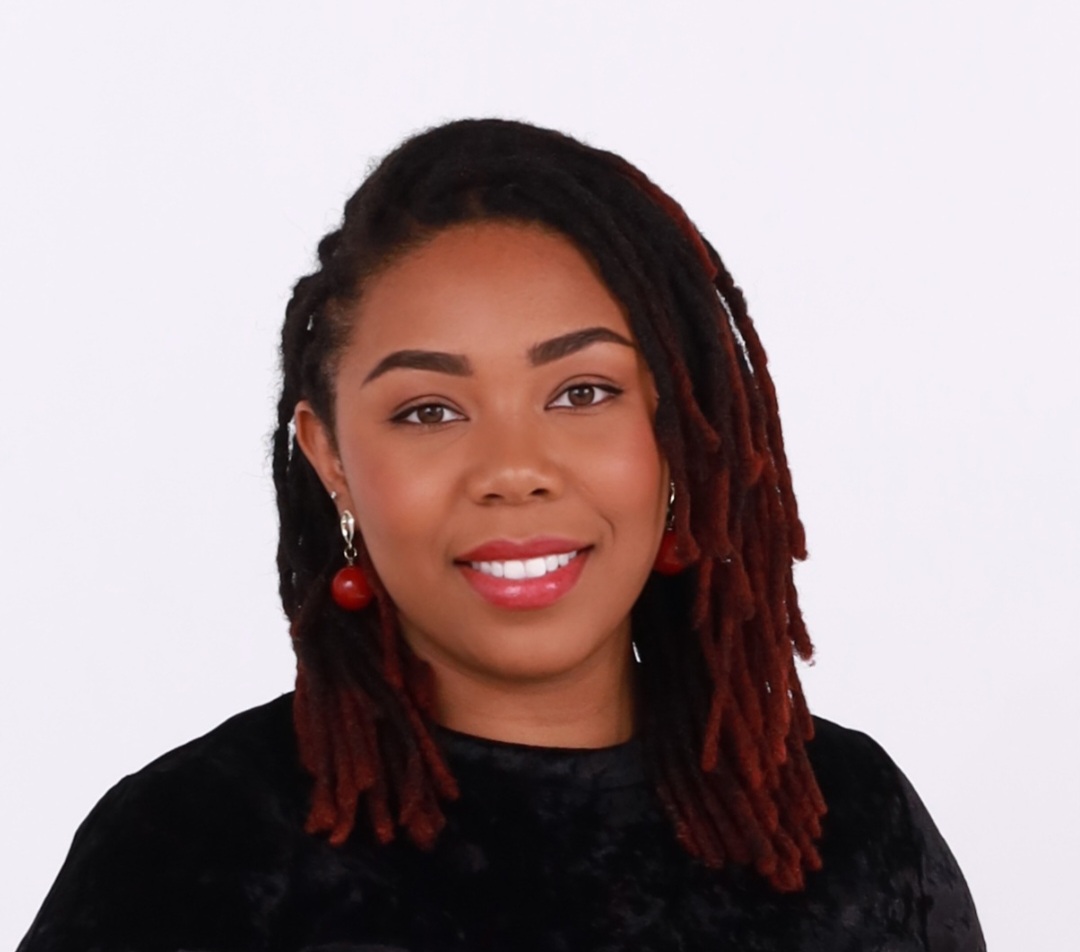 Shantana Hunte, Program Coordinator
Shantana Hunte, Program Coordinator
Shantana Hunte is a dedicated professional with extensive experience in education and social services, particularly in community development and youth support. She currently works with the Ontario Association of Children’s Aid Societies (OACAS), coordinating equity-focused programs such as One Vision, One Voice and SOGIE. Passionate about social equity, Shantana has a particular focus on supporting children and youth who are affected by marginalization, gender and sexuality challenges, and trauma healing.
 Karen Saunders, Community Engagement Analyst
Karen Saunders, Community Engagement Analyst
Karen Saunders is a Black woman, mother, grandmother, and friend who is passionate about social justice, particularly Anti-Black Racism. With 24 years of experience at DCAS, Karen has served as a Child Service Worker, Kinship Worker, and Youth Independence Program Lead. In the past three years, she has found her true calling as an OVOV Project Specialist, where she works to enhance support for Black families by implementing processes and teachings that promote equity and understanding. Karen’s work emphasizes the importance of examining history, intersections, and systems, and how they impact Black families. Karen serves as the Community Engagement Analyst, OVOV.
 Jacqueline Beckford
Jacqueline Beckford
Jacqueline Beckford is a dedicated community advocate with 25 years in the Ontario government, where she has contributed to a wide range of public service ministries. She specializes in front-line service delivery, project management, service design, stakeholder relations, and strategic policy development. Recognized by the Ministry of Health in January 2025 for advancing health equity during the 2022 pandemic, Jacqueline is committed to expanding access to essential services through local community investments. Since 2020, she has volunteered with the Ontario Children’s Aid Society’s Power Up Youth Symposium, promoting empowerment and unity.

Dr. Lance T. McCready
Dr. Lance T. McCready is an Associate Professor at OISE and Director of the Transitional Year Programme at the University of Toronto. His research centers on education, health, and welfare of Black families, youth, and adults in urban settings. He authored Making Space for Diverse Masculinities and is Co-Director/Principal Investigator of the Exploratory Study of Black Gender-Expansive Youth and the African, Caribbean, Black Family Group Conferencing Project. He also co-investigates the Black CAP Getakit study and the International Partnership for Queer Youth Resilience. Dr. McCready received the Ludwik & Estelle Jus Memorial Human Rights Prize (2017), was named Distinguished Research Scholar (2018), and honored for Excellence in Educational Leadership (2025).
 Dr. Travonne Edwards
Dr. Travonne Edwards
Dr. Travonne Edwards is an Assistant Professor in the School of Child and Youth Care at Toronto Metropolitan University. He holds a PhD in Social Work from the University of Toronto, an advanced diploma in Child and Youth Care from Sheridan College, and a BA and MA in Child and Youth Care from Toronto Metropolitan University. An experienced community-based youth worker, Dr. Edwards has worked in child welfare, education, and housing for youth experiencing homelessness. He has received SSHRC awards and the Connaught for Public Impact Fellowship. His research focuses on state systems and Black community experiences to improve outcomes.
 Tracey Grose
Tracey Grose
Tracey Grose is the Culturally Responsive Practices Lead at School Mental Health Ontario, supporting youth mental health across 76 school boards. She holds degrees from University of Toronto, York University, Seneca College, and a Master of Social Work from the University of Georgia, plus a School Social Work certificate from Wayne State University. With 8 years’ experience in US children’s mental health, Tracey returned to Ontario to work at Ontario Shores and became the first Black social worker at Durham District School Board. She leads initiatives in social justice education and advocates for Black students’ success. She is also a sessional instructor at University of Toronto.
 Dr. Vidal A. Chavannes
Dr. Vidal A. Chavannes
Dr. Vidal A. Chavannes, Ed.D, is Director of Strategy, Research & Organizational Performance at Durham Regional Police Service. He holds a Doctorate in Education (Leadership) from the University of Calgary, plus M.A.Ed., B.A., and B.Ed. Dr. Chavannes has extensive experience in education and training across Canada, the U.S., and U.K., working in secondary, post-secondary, and vocational settings. He has contributed to public, private, and non-profit sectors, guiding accreditations and developing evaluative frameworks. A former Post-Doctoral Fellow at the University of Toronto, he researches Black student access and serves as an Adjunct Professor at Ontario Tech and Associate Member at Toronto Metropolitan University.
 Eleanor McIntosh
Eleanor McIntosh
Eleanor is a dynamic, forward-thinking, and collaborative Educational Leader with over 20 years of experience driving system-wide success across education and community settings. Eleanor’s leadership includes leadership roles as a principal, teacher, post-secondary educator, and community advocate. Recognized for a strong background in strategic thinking, change management, project and operational planning, innovation leadership, and stakeholder engagement. Eleanor is passionate about Equity, Diversity, and Inclusion, with a demonstrated track record of advancing anti-oppression initiatives, leading equity-focused committees, and facilitating impactful training sessions. Eleanor currently serves as Superintendent of Education at Halton District School Board.
 Kofi Morris
Kofi Morris
Kofi Morris, aka Br. Kofi, is an author, speaker, Holistic Ancestral Healer, and Freedom & Alignment Coach. Founder of Cosmic Wellness, he blends ancient wisdom with modern practices to help individuals achieve success, wealth, and healthy relationships through traditional healing. Specializing in Qi Gong, Mindfulness, Radical Self-Care, and African-Centered Holistic Health, he leads transformative workshops and mentors youth globally. Br. Kofi chairs the Harriet Tubman Community Organization and speaks across North America, South America, the Caribbean, and Africa. He is available for ceremonies, celebrations, and events promoting empowerment and holistic well-being.
 Nicole Perryman
Nicole Perryman
Nicole Perryman is a registered social worker, psychotherapist, and mental health advocate with over 20 years of experience supporting children, youth, and families. She specializes in trauma-informed care, equity, and community healing, working in child welfare, education, and clinical therapy. Nicole is the founder of Ifarada Centre for Excellence, focusing on mental health, social justice, and youth empowerment. Passionate about systemic change, she integrates holistic wellness and culturally responsive practices to uplift communities and ensure access to compassionate, effective support for all.
 Dokun Nochirionye
Dokun Nochirionye
Dokun Nochirionye (Mrs. Noch) is a Certified Parent Educator and Founder/Executive Director of Thriving African Families, leading culturally relevant programs supporting African heritage families. With nearly 20 years of experience, she specializes in community development, governance, cultural advocacy, coaching, and executive leadership. A DEI Employment Coach and United Way Young Leader, she serves on multiple boards focused on education, child welfare, mental health, and women’s empowerment. An engaging public speaker and moderator, Dokun is recognized with the Ontario Community Changemakers Award, Good Neighbour Award, and Civic Award for Volunteerism for her impactful advocacy and leadership.
 Dr. Bryn King
Dr. Bryn King
Dr. Bryn King joined the Factor-Inwentash Faculty of Social Work in July 2015 as an Assistant Professor. Bryn is also an Affiliated Researcher at the Children’s Data Network, University of Southern California, and the California Child Welfare Indicators Project, University of California, Berkeley. Bryn is the co-Founder & co-Director of the Youth Wellness Lab, housed at the Factor-Inwentash Faculty of Social Work (FIFSW), University of Toronto (UofT). Bryn’s research focuses on understanding how youth and families move through child welfare systems, how child welfare involvement shapes outcomes, and how that varies by race and other circumstances.
We Welcome Your Ongoing Feedback
Email: onevisiononevoice@oacas.org
Join the Conversation Online
Join the conversation on social media through X, Facebook, or Instagram by telling us how Ontario’s child welfare system can better serve the African Canadian population.
Follow us @1Vision1VoiceCA and use the hashtag: #1Vision1Voice
What's Next
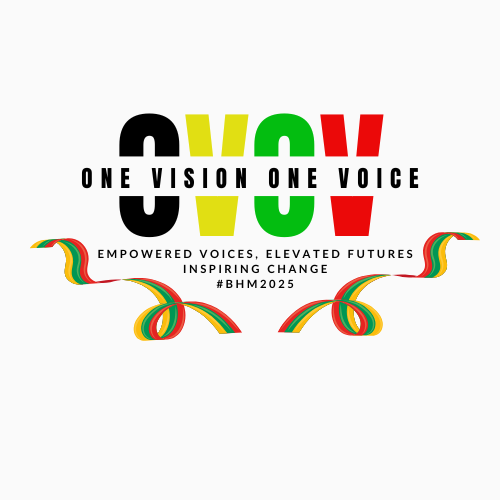
Catch Up!
On January 30th, The Office of the Chief Coroner, Child and Youth Death Review and Analysis and One Vision One Voice partnered to host Shaping Their Stories: Honouring the experiences and supporting the well-being of African, Caribbean, and Black Children & Youth – a forum centering African, Caribbean and Black (ACB) communities This Policy Forum served as a space to listen to and honour the experiences of ACB communities through spoken word, engaging presentations, and panel discussions with knowledge-holders across diverse sectors in Ontario. Visual representations of the forum will be available soon.
OVOV hosted a rollout webinar for the Mapping Disparities for Black Families (MDBF) project last week, and the resources are now available! The webinar was presented by Dr. Bryn King and Dr. Travonne Edwards from the Factor-Inwentash Faculty of Social Work, University of Toronto. OVOV appreciates everyone’s participation. To view the presentation slide deck and the webinar recording, click here. Fact sheets and other resources will also be made available to align with Black History Month.
Follow Us
Latest News
Our Resources
Video Highlights
2024 Power Up! Symposium
PowerUp! 2023 – Highlights
Turning Evidence into Action: OVOV
Understanding the Over-representation of Black Children in Ontario Child Welfare Services
All In: African Canadian Child Welfare Symposium
What are the Race Equity Practices?
Click on a Practice to read its description.
Commit to courageous leadership.
It is the responsibility of the organization’s Board, Executive Director / Chief Executive Officer and senior management team to set the direction, specify organizational expectations, and allocate resources, lead conversations on anti-Black racism, spearhead anti-racism organizational change efforts, and engage the organization in courageous conversations if racial disproportionality and disparities are to be identified and addressed.
Collect and analyze data to measure racial disproportionality and disparities
Through the use of data, child welfare agencies are able to assess the extent of racial disproportionality and disparities, identify the underlying causes, as well as measure progress toward improving service outcomes.
Evaluate programs and monitor performance.
Ongoing program evaluation and performance monitoring allows organizations to understand which programs, services, and practices are working, the impact they have on African Canadian children, youth and families, and where changes are needed to achieve desired outcomes.
Allocate appropriate and dedicated resources.
When procuring services (e.g., group homes, outside paid resources, and mental health beds), each agency should include an assessment of the service provider’s ability to reflect and appropriately serve African Canadian children and youth in care and their complex needs.
Engage African Canadian parents and communities.
Child welfare agencies must develop ways of engaging parents and community members not only in the short term, but also with the goal of developing and maintaining relationships over the long term.
Engage and educate mandated referrers.
As the first stage in the child welfare continuum, mandated referrers can contribute to the overrepresentation of African Canadians in the child welfare system. As such, it is important that child welfare agencies analyze referral data and provide critical feedback and additional training to referral organizations and professionals as needed.
Establish effective internal complaint mechanisms.
African Canadian families involved with the child welfare system need to be informed of the complaints mechanisms available to them. Further, these mechanisms should be assessed to determine how well they serve the needs of and address the issues raised.
Enhance human resource management.
Within child welfare agencies, there is a need to ensure that African Canadian staff, and indeed all staff, are able to raise concerns as needed and advocate for changes to better serve African Canadians without fear of reprisal.
Provide daily supervision, ongoing training, and supports for staff, volunteers and caregivers.
Ensure agency staff, volunteers, and caregivers are well-trained in anti-racism, with a focus on anti-Black racism, and that they receive daily supervision that supports the application of this knowledge to support better outcomes for African Canadian children, youth and families.
Establish collaborations and partnerships.
Ensure ongoing engagement of African Canadian parents and the local African Canadian community to support the work of the child welfare agency and the success of African Canadian children, youth and families.
Strengthen the ability of caregivers to support African Canadian children and youth.
Child welfare agencies can support positive outcomes for African Canadian children and youth in care by placing them with kin as the first option and African Canadian families as the second option, as well as by ensuring caregivers are well trained, supported, and able to support the development of a strong and positive racial identity and the maintenance of cultural connections.
- Programs and Resources
- OACAS 2025 Pre-Budget Submission

